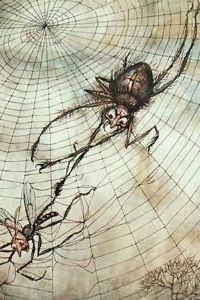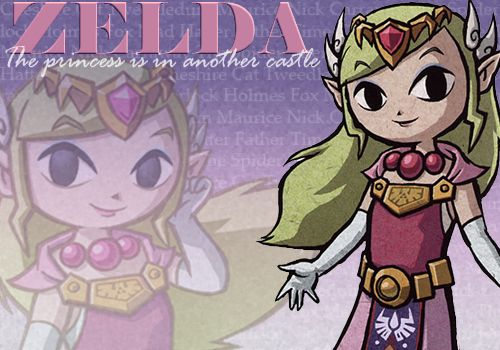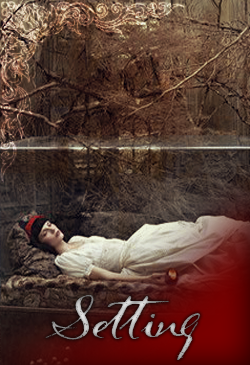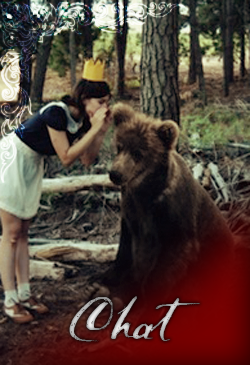Post by ZELDA on Jan 21, 2013 20:20:08 GMT -5
...william patrick webb*
* Some men just want to watch the world burn. *
[/size]* Some men just want to watch the world burn. *


...basics*
name...[/b][/size] William Patrick Webb.
nickname...[/b][/size] He prefers William, but he’ll take Will. Willy, Billy, and Bill are not acceptable.
age...[/b][/size] 33. Or 32. He isn’t sure. He’s forgotten his birthyear, and God knows he’s never known his birthday – it’s sometime mid-February.
gender...[/b][/size] Male, thank you.
grade...[/b][/size] N/A
occupation...[/b][/size] Criminal consultant, crime lord, professional hacker, con artist, thief, terrorist... You know. Real ordinary, normal stuff.
hometown...[/b][/size] Edinburgh, Scotland
sexuality...[/b][/size] Aromantic pansexual
personification...[/b][/size] The Spider from “The Spider and the Fly” by Mary Howitt
status...[/b][/size] AWAKE
face claim...[/b][/size] Andrew Scott[/blockquote]
...appearance*
physical...[/b][/size] The most distinctive thing about William is his eyes. They are the first thing you notice when you look at him – he has big, black, dead eyes, hooded with languor and wreathed in the customary black and purple shadows of a chronic insomniac. To some, the lack of emotion and light in his eyes comes off as a bit creepy. To others, it’s downright terrifying. Either way, the one flaw in his almost-flawless acting is that he can never quite make his eyes look alive. They always look flat and empty. His face can stretch into a variety of different expressions as quickly as you like; still, his default is decidedly emotionless.
William has an angular jaw occasionally speckled with stubble, depending on how closely he cares to shave. His features are largely regarded as appealingly Anglo-Saxon, though the pallor and the black hair rub some people the wrong way. He’s about 5’9, and of an exceedingly slender build due to a spotty diet – he is known to go days without eating or sleeping, and it’s made him pale and skeletal. However, thin as he may be, he is streamlined with lean muscle. William is much faster and much stronger than he looks, and if you rub him the wrong way, he’ll be happy to show you just how fast, and just how strong.
clothing style...[/b][/size] He usually wears nice suits because he can afford him and he likes the way they fit him – and do they fit him. His chosen brand is Westwood, his chosen color black, though navy and varying shades of gray occasionally make their way into the mix. He wears his hair slicked back and is exceedingly fond of quirky cufflinks, usually skulls or spiders or something equally macabre. This is no doubt a result of his equally grisly sense of humor.
However, William is capable of changing who he is at a moment’s notice, and that includes his clothing style. For example, his Richard Allen alias dresses in t-shirts, hoodies, and paint-splattered skinny jeans. When he wants to go unnoticed, he can dress like a civilian. But when he’s being himself, he is almost always in a freshly-ironed suit.
defining traits...[/b][/size] Though he rarely undresses even when he’s getting busy with a victim of his charms, William’s body is covered in scars. His arms and thighs are dotted with cigarette burns. His back sports a plethora of lash marks. Rows of neat, thin lines march up his sides from his hips. Nearly every part of him is scarred. The most notable ones include the lashes on his back, a large burn on his ribs, and a brand – such as one intended for horses – on the small of his back (a five-pointed star containing a capital M, enclosed perfectly inside a circle). Needless to say, when he needs to get naked in front of someone, he dismisses the scars or finds a way to hide them, usually through exceptional make-up artistry (he has a man for that). He doesn’t like questions about them. They’re from another life. Nowadays, he sees them largely as a nuisance.
William also has a distinct aura of danger around him, the kind that alarms most animals regardless of who he’s pretending to be and most people when he’s being himself. He’s capable of hiding this disturbing atmosphere when he’s “acting,” but when he isn’t, it makes him feel larger than life – and gives you a feel for who he actually is.
He also has two small tattoos: a spider on the back of his neck, and NO RETURN across his hipbone, above his waistline. [/blockquote]
...personal info*
personality...[/b][/size]
William is a psychopath. Or, at the very least, he’s very much convinced he is.
And why shouldn’t he be? He’s textbook. He has absolutely no empathy towards other human beings – he is incapable of love. His moral code is nonexistent; instead, he follows his own set of rules designed for the playing of his own personal game of life. And that’s what everything is to him: a game. He has devoted his fleeting existence to occupying himself as interestingly as possible. It’s really the only reason he hasn’t killed himself yet.
William has no sense of self-preservation beyond what serves his own purposes. He’s a standard nihilist – he believes that existence and everything in it is inherently meaningless and without value. Of course, personal value can be assigned to things, as William assigns value to his game. However, in regards to material possession, other living things, and even his own body, William simply doesn’t care. The world is his plaything. People are toys. His own body is a vessel to maintain only until his boredom overcomes him so thoroughly that he feels the need to end his existence. For this reason, he is incredibly self-destructive. He regularly sleeps around, does whatever sorts of drugs he feels like doing (morphine is his drug of choice), and even self-harms when he’s upset and there’s nothing else around to receive the side effects of his rage. He’s a reckless driver because he finds it exciting, and he frequently engages in potentially fatal stunts just because he thinks it might be “a good laugh.”
But William’s naturally destructive behavior is not limited to himself. He holds no pity for animals, and they seem to smell on him the aura of death – dogs snap at him, horses kick, cats yowl, and William happily snaps, kicks, and yowls back. And, as aforementioned, William loves to play with people. They are his most interesting playthings, but, at the same time, he finds them painfully boring. (He finds almost everything painfully boring, which is why he spends so much time trying to find something “fun” to do.) This is because he has taught himself to read them easily – not because he understands emotions, but because he is an excellent reader of body language, and his cynical views on human nature often seem to hold true. He is a master of manipulation and seduction; he can take a look at a person and know exactly what it will take to get them in his bed or to give him what he wants.
But the most interesting people to William are the ones that don’t bend to his will as easily as the rest. William hates not getting what he wants, but, at the same time, he loves it: it means a challenge. Since he lives for challenges, anyone or anything that poses such for him is always, at least initially, a fascinating subject. Similarly, human beings that resist his naturally magnetic charm are usually targets for his uncontrollable lust – for, though he doesn’t love, he wants – more acutely, perhaps, than any other human being on Earth. And, like most people, he wants what he can’t have. If it’s hard to get to, he wants it. Of course, once he has it and the honeymoon of his victory wears off, he gets bored again and moves on to the next conquest. He is a cruel man, one who is aware of his own cruelty and simply doesn’t care. Any tendency towards sympathy was erased in him long ago.
As a master of disguise, William uses his talent at reading human needs and reactions to create personas. He has numerous valid identities, whereas his own is not present in any registrars anywhere in the world. Technically, William Webb doesn’t exist – it is only by his fake identities that he manages to appear in any system. Of course, the existence of his identities also fluctuates, depending on their relevance to him. But that aside, he is an incredibly convincing actor. He also has an exceptionally magnetic presence; people have been increasingly more drawn to him just naturally since the awakening of the Spider. Without even trying, he is compelling and entrancing, with an exceptional talent for suavity. However, William is highly inconsistent in temperament and prone to violent mood swings. He may be happy and cheerful one moment, the next irritable and depressed, the next irrationally angry. As a general rule, cheery and joking or flat and impassive is his default mood, but he’s more volatile than antifreeze. He’s even been known to throw violent temper tantrums – for all his radical intelligence and various crimes, William is really just a child. And, rather like a badly-behaved child, he hates nothing more than someone else trying to tell him what to do.
William is wickedly intelligent in the worst way. He is nothing short of a criminal mastermind, and, with his ruthless attitude and almost limitless intellect, he has gained control of (or at least contacts in) the international criminal underground. As he likes to put it, he is “the world’s criminal.” He can have a bank in Belgium drained of its finances while he sits in New York City sipping a martini. He can have a politician murdered in Russia while he’s on vacation in Fiji. Needless to say, he is incredibly powerful and incredibly rich – but looking at him, you wouldn’t know it. He uses only as much money on himself as he wants to, which, compared to “normal” people, really isn’t very much; money is ultimately irrelevant to him. He takes it because he can, and because it’s useful. Usually, he uses up just enough of his own money to buy himself some nice suits, good alcohol, exotic drugs, and etc. The rest he usually puts toward his own motives, whatever they may be at the time. He needs to have puzzles given to him in order to stay engaged, so if you provide him with a problem that needs to be solved (although it isn’t his official business), you’re likely to have him give you a very clever solution. He is also artistically talented, though his style is always very warped in appearance; and, since the awakening of the Spider, he has become very fond of knitting.
William knows exactly how smart he is, and he has a great deal of self-confidence because of it. He can come off as a bit arrogant or condescending and almost always smug in some way. However, he is also extremely logical, and he knows that allowing his arrogance to get to him will make him miss something important, which, in his line of work, it is crucial not to do. So, though he is thoroughly self-absorbed and a patent narcissist, he is also exceptionally meticulous. He does not make assumptions – he checks and double-checks his work, even if it can be tedious.
But under the layers and layers of emotional blockades, intense repression, and fabricated narcissism of William Webb, there is Cameron McCauley. Cameron is the damaged genius whom the world made vindictive, whose rage the Spider monopolized to make himself a war machine. Cameron is the child who has always and without fail been alone, the child no-one protected and no-one loved. Of course, William is more than happy to pretend he doesn’t exist; to him, Cameron represents helplessness. Cameron was a victim. He is not. He is convinced that he eradicated Cameron long ago. But the fact is that Cameron is still alive. William cannot kill him because he is him: for all his masquerading and all the blood on his hands, the hollowness inside him is Cameron’s hollowness, and no-one else’s.
William is generally far more unstable than he lets on. He rarely eats, and he never sleeps – largely due to night terrors that have plagued him for years. When he does sleep, he wakes up screaming, so he simply refuses to (until he passes out on the couch for sixteen hour stretches). William is most likely a victim of Post-Traumatic Stress Disorder, but he would be the last one to admit it, and God knows pigs would sooner fly than William Webb set foot in a therapist’s office. As a victim of his own pride, he refuses to admit that he needs help of any kind. Even on his bad days, when he is plagued with hallucinations and ill tempers, he doesn’t actually deal with them; instead, he holes up in his room and waits for it to pass. Any damage done to himself in that period of time is largely ignored, and his cronies have learned just not to mention the boss’s low periods. A wise decision – the last man who did got a bullet in the head.
life until now...[/b][/size]
(trigger warning: murder, mentions of physical, verbal, and sexual abuse)
Cameron James McCauley was born in a little hospital in Edinburgh, Scotland. He was the product of an unwanted pregnancy in the McCauley family. They were young – Ross McCauley had married Emma Smith largely out of convenience, because she had more money than he had and because she was (at the time) pregnant with his child. Thus, Cameron came into the world to a nineteen-year-old mother and a twenty-year-old father, neither of whom had a steady of income, and neither of whom particularly wanted a child.
For that reason, both Emma and Ross had little tolerance for their son. They regarded him as a drain on their funds – a nuisance rather than a blessing. They yelled at him when he cried, they ignored him when he cried out for their attention. Cameron, being an unusually smart baby, soon learned that crying and yelling were really of no use at all, and so he rapidly became an eerily quiet child. He took to playing by himself, a habit developed so early on that it made forming friendships with his peers nearly impossible later on.
As the boy grew, his intelligence became more and more obvious. His eyes were bright and alert and wide, and he was ever-present in the world as few babies are, but the McCauleys looked at him so rarely that this didn’t register with them. In fact, they thought at first that Cameron might be mentally deficient; after all, he didn’t speak until he was nearly two. But when he did start speaking, he did so in complete sentences, from the moment he opened his mouth for the first time and asked, “Mommy, can I have juice?” He could read on his own by two and a half, and by five was reading the news every morning when his father was done with it, devouring books without pictures and beginning to delve into philosophy.
Without a doubt, he was a genius. There was no other word to describe the intellect of the child.
But such intelligence in such a setting garnered numerous behavioral problems. Cameron was a moody child. He hated not getting his way and he was not beyond throwing fits, ignoring authority figures, or skipping class to try to get what he wanted. For a child, he was insensitive and manipulative. He cried a lot, occasionally threatened teachers, and wreaked general havoc, all simply because he didn’t care to be bored. Cameron was always bored. He was several grade levels ahead of the rest of his class by the time he started school, and the teachers simply didn’t know what to do with him.
Neither did the McCauleys.
As their unwanted son grew – and gradually became exceedingly more troublesome – Ross and Emma started to respond negatively. They had, of course, never been particularly nice to Cameron – they never complimented him or asked him how he was, just told him to be quiet and stay out of their way. But it was around that time that the abuse started.
It would start with a slap or a spank or an angry reprimand, but by the time William was five or six, it became serious. Both of his parents were cruel, uneducated, and arrogant. Emma was an utter shrew, entirely bitter that her life hadn’t turned out as glamorous as she’d hoped and thus constantly sourfaced. Ross, on the other hand, was an alcoholic and a narcissist, resentful of his parents for making him work as a child and (he thought) stifling his natural talent. The two didn’t understand what Cameron needed, and they didn’t care. They didn’t ask to have him, as they reminded him often, and if they weren’t so against abortion, he would not have been born at all. His mother was the one who repeated this to him the most frequently: that he was worthless, troublesome, meaningless. She emasculated him, humiliated him, and degraded him. In Emma’s eyes, everything Cameron did was wrong.
Ross, on the other hand, was far worse. Not only was he verbally cruel to the boy, but he beat him – badly, and often. Occasionally it would be as simple as a kick in the bum, but as Cameron got older and started fighting back, it would get worse. Sometimes, he was thrown down the stairs. Sometimes, he was locked in a closet for hours on end. And sometimes, his father did worse.
Sometimes, he came into Cameron’s bed at night.
It wasn’t every night. At first it was just sometimes, when his father was very drunk or very angry or just particularly sick. He would rouse his undernourished, skinny, pale son in the middle of the night and he would do things to him that a father should never do to his child.
Often, Cameron would take the next day off of school, typically because it was difficult for him to walk. And his father, on those days, let him. Usually.
His mother said nothing about it. Supposedly, she ignored the white stains and the blood on Cameron’s sheets. She stared the evidence in the face and lied to herself about it.
By the time Cameron was eight or nine, he had shut himself down. He would come into school with a black eye and a smile on his face and say nothing about it. He would stash knives in his locker and kill small animals on the playground so he could dissect them. (Once, he took apart the neighbor’s cat. He wasn’t ever caught for that one.) By then, he was cold. The tendencies that had shone through in his childhood had been fostered into psychopathy by years of abuse. He’d shut himself down because the world was painful, because feeling was painful. When his father came to his bed at night or ordered him into the garden shed, Cameron’s brain went into sleep mode. He closed his doors tight, and he felt just a little better for it. At home, he was meek and obedient. To everyone else, he was icy and unforgiving, with a temper like a time bomb. He became what the world wanted him to be: a killer.
At the age of eleven, he joined a gang, hoping that perhaps there, just once, they might give him attention. He ran errands and delivered messages for the head of the mob, but he found, after a year in his service, that the boss cared just as little about him as the rest of the world did. That was his very last attempt to reach out to people out of sheer want of companionship.
As Cameron grew older, the abuse grew worse. He got stronger, but never was he strong enough to ward off Ross – even if he was, failure to comply with his father’s horrific demands would land him in the street, and Cameron couldn’t afford that. For an abuse victim, he was exceptionally practical. Even when Ross would “rent” Cameron to his friends for booze money, Cameron didn’t run. He shut down as he always did. He was patient.
School was not much better than home for Cameron. Besides being socially inept and virtually incapable of interacting with his teachers or peers, he was also arrogant and outspoken when he found a problem in those around him. The fact that he was always right earned him the loathing of his peers – he was brilliant and cruel and different and they hated him for it. And, since Cameron was such a short and slender boy, it was very easy to knock him around or throw him into lockers. He was tortured on a daily basis at school, but this, too, was shut out. He didn’t ask for help from the teachers, and the ones that worried about him enough to get close to him found him unreceptive to their offers for aid. He went through the public school system unnoticed.
By fifteen, Cameron was a full-blown psychopath. He no longer cried. He killed neighborhood animals on occasion and kept knives and explosives in his room. He came into school bearing the marks of his abuse on a daily basis and smiling all the way through them, as if they didn’t matter – the only sign that it affected him at all was the way he would flinch away from touch of any kind.
By that time, he was determined to make something of himself – something that would make his patience all those years worthwhile. He needed something, anything, to alleviate the agony of his own boredom, the irrepressible wailing of his potent and unoccupied mind. He had tried to kill himself on eight separate occasions by the time he turned fifteen. Each instance, he’d either been unsuccessful, or someone had stopped or interrupted him before he had the chance to finish the job. So he decided to power through the rest of his schooling as quickly as possible (despite the fact that he was hardly ever in class – they taught him nothing that he didn’t already know). He devoured his college curriculum and moved on to university at seventeen. And then, at last, with his surprisingly good grades and a little bit of manipulation, he got himself into Cambridge.
Cameron’s time at Cambridge was the happiest in his life. He tore the place to pieces; finally, after all these years, he was in a place that could placate his genius. His scores were incredible – higher than anything anyone could have imagined him achieving at his shitty little public school in Scotland. He was radiant in every field of study he tried, and he tried them all, picking up languages, deciphering complex mathematical equations, memorizing historical details and drawing connections between them.
And when he was finished, when he had graduated, he went back to Edinburgh and he murdered Ross and Emma McCauley, slowly, brutally, and deliciously. The former, especially, he took his time on; after all, Emma’s comments had rolled off him after a while, but Ross was different. Ross had tied him down and pressed a horse brand to the small of his back when he was fourteen. Ross had burned his initials into Cameron’s ribs with a coil of copper wire and a Zippo lighter. Ross had scooped out everything human in Cameron and made him ugly, bitten and burned and cut him until, in the words of the man himself, “no-one will ever have you but me, Cameron.”
The sounds of his father screaming were more beautiful to Cameron than Beethoven.
That was the day the Spider awoke in him, the day that he sat on the kitchen floor covered in his parents’ blood. That was the day the gentleman’s voice wandered between his thoughts, silky and soothing. He was justified, it cooed. And the arrival of that voice brought with it a sudden awareness of himself, of his real self – of what he was and what he could become.
The Spider did not manifest in any serious way. It took the shape of his shadow when it wanted to speak to him, morphing Cameron’s human silhouette into the distended form of his arachnid counterpart. The Spider reassured him that night that the worst was over now. He was free of all limitations. He had a web to weave, he had flies to catch, and never again need he find himself below another human being – because Cameron was not a human being. He was bigger than that. Under the influence of the Spider’s advice, Cameron McCauley cleaned up, left Edinburgh, and erased every trace of his existence that he could. He remade himself as the self-coronated king of crime, William Webb.
There were a few other perks to his newly-realized identity, such as the neurotoxin he could now produce at will from the roof of his mouth. There was no Spiderman web-shooting involved, but he did notice that his reflexes became faster after that day, his hands nimbler, his actions quicker. And he took up knitting. Just a side-effect, he supposed.
After that, he threw himself into the alleviation of his boredom. He did anything. He did everything. He started puzzling out crimes for fun, figuring out how he could rob banks unseen, murder diplomats unheard. And slowly, very slowly, with the new magnetism the Spider’s influence seemed to lend him and his now superhuman abilities, he laid a trap for the world.
He acquired contacts. He pandered, he threatened, he manipulated. He made himself out to be a prince, a businessman, a homeless boy, anything, everything. He spent years of his life weaving his web, ensnaring victim after victim, bringing leader after leader under his thumb. And, already as well-educated as he was and as good with numbers, it didn’t take long for him to make himself into a master hacker. Almost instantly, he was bringing governments to their knees with a few lines of computer code, springing the locks on bank security systems from hundreds of miles away, acquiring classified military secrets and holding them for ransom. He became very rich and very powerful within the span of just a few years. And he was never, ever caught.
After all, spiders don’t have fingerprints.
the present...[/b][/size]
Nowadays, William all but rules the world.
He is in control of almost everything. With just a few lines of code, he can do virtually whatever he wants. He sets up challenges for himself to keep himself occupied. He can be anyone at any time, twisting the people around him with facades and flattery and false promises. He finds victims and targets and he keeps going, keeps changing his schedules and his locations to make things interesting – but, for the moment, he’s settled in New York. He sits in the center of his web in haughty silence, and he can feel every twitch and vibration of every thread. That one man runs a business as powerful and far-reaching as his at such a young age is almost unbelievable, but his enormous mind is more than capable of handling it.
Of course, just from being who he is, William has a significant amount of political influence just through what he can do with threats and his unique hacking talents. But that hasn’t been enough for him lately. He’s wanted a little something else, and, to do so, he’s crafted himself a persona named Richard Allen and taken a specific interest in one politician named David Winters.
other notes...[/b][/size] His natural accent is a very thick, lower class Scottish accent – he trained it up to something more coherent and refined (to hear an example of what his accent sounds like – albeit not in Andrew Scott’s voice – look up any interview with James McAvoy speaking in his natural accent). He can do almost any kind of accent at will depending on the persona he’s playing, be it American, English, Australian, Irish, Russian, German, or anything else. “Richard Allen,” for example, has a startlingly accurate Seattle accent. [/blockquote]
...literature*
title... “The Spider and the Fly” by Mary Howitt
backstory... There’s a very clever spider who’s trying to get this fly into his house so he can eat her. He offers her all sorts of goodies, a bed in his house, a place to sit in his parlour, but the fly knows better – she knows that the spider is trying to lure her in with presents so he can eat her. She refuses him time and again, and then finally leaves.
The spider then gets a brilliant idea. He gets his table ready to chow down on the fly, comes to his door, and starts calling to her, complimenting the fly’s beauty – her wings, her eyes, her clothes, etc. The fly, entranced by his flattery, flits over to him, and the spider grabs her and finally gets his dinner.
...the roleplayer*
tell us about you...[/b][/size] I’m Zelda and I’m rewriting my new favorite baby because he’s gotten about 20,000 leagues deeper than he was when I wrote this app. Amen. [/blockquote]
...writing*
writing sample/freestyle...[/b][/size] William. William. William. I am William.
“You can run, Cameron, but you can’t hide.”
“Give the order for the execution of the Prime Minister. We’ll see if they reconsider their priorities then, hmmm?” He smiles faintly (ghost fingers on his throat where there were once bruises, hard callused fingers, bad fingers) and tosses the money clip across the table, raising his lifeless black eyes to the man standing tall and straight on the other side.
“Whatever you say, boss.”
William. I am William. I am William Webb.
He knew when he woke up this morning that it was going to be a bad day specifically because he woke up. He didn’t sleep (the creak of the door at 3 AM, the room fills instantly with the scent of body odor and cheap whiskey) intentionally. He didn’t like to submit to the night terrors that plagued his subconscious mind, replaying old memories over and over like a broken VHS tape. (no no no don’t touch me not tonight I’ll be good no please no)
“You’re mine.”
“No, I’m not,” he murmurs, eyes on his hands now, cracking his neck (pain is a signal he thinks through his screams if you shut it out then you win) he fell asleep on the couch, his head to one side.
“Not what, boss?” His employee across the table is still here, why is he still here?
“You have your orders, get out,” he snaps. There are hair fractures of hot anger in the ice of his voice.
The man takes the money and leaves. William does not remember his face. He does not remember any of their faces unless they are in front of him.
“You think you’re so big now, don’t you, you little slut? Top dog, well, ain’t that just ruddy great, little poor Scottish boy dragging himself up from the depths to play head honcho of the world. You think you’re better than me?”
“Shut up,” he hisses. (big hands angry hands on his shoulders his chest sliding down his body get away get away stop stop you aren’t real)
“Don’t you talk back to me, boy. Remember where you came from. Remember who made you what you are.”
Don’t you dare take credit for me, he thinks. Don’t you dare try to take credit for my success. I built this empire on top of ruins.
“Don’t tell me what I can’t do. You belong to me. You always have. You’re mine because no-one else will have you.”
“SHUT UP!” A chair goes hurtling across the room and crashes through the floor-to-ceiling windows on the opposite wall, cold twentieth-story air rushing in as the glass shatters in slow motion (the day He found out about the piano He broke three of his fingers, broke them slow, fix them yourself boy if you’re so feckin’ clever, piece of shit, spending your school time playing your posh feckin’ music well music don’t earn this family any money you lazy little whore why don’t you get a job if you’re just gonna waste your time on things that don’t feckin’ matter CRACK daddy no no please)
(it hurts)
(stop)
(stop)
The room is spinning and there are no tears, his eyes are dry though the child in the back of his head cries and cries and cries at the foot of the basement stairs with two broken ribs and blood trickling into his eyes from a wound on his forehead (where his head hit the railing on the way down)
“Stop it. Stop it...” He doesn’t have time for this. He doesn’t have time to be broken, he’s king of the world, he doesn’t have time for the voices of dead men. “I killed you. I killed you and you’re dead, I am William, I AM WILLIAM!”
I am William. William. William. William. I am William. Cameron is dead.
He doesn’t know who he’s talking to, Cameron or Ross, he never really knows who he blames anymore, and then there’s always Emma too, he can hear her shrill voice telling him he’s a bad person but then again that never really goes away (cameron CAMERON where is that useless child CAMERON what the HELL are you doing, oh, reading again I see, what is it now, oh Voltaire well isn’t that bloody GRAND you’re just a regular philosopher aren’t you well let me tell you something, reading this pretty little BOOK of yours and thinkin’ it makes you cleverer than us isn’t gonna put no food on the table, you get in that kitchen and you MAKE DINNER BEFORE YOUR FATHER GETS HOME or so help me god the things I will do to you, that’s right you put that book down and you listen to your mother, for fuck’s sake, what kind of son are you, if I hadn’t seen the evidence myself I’d think you were born a woman, never show an ounce of manliness in you day to day, ought to check again to make sure that puny cock of yours hasn’t right fallen off)
(oh you don’t need to worry about that daddy’s checked)
He supposes he just stopped hearing her after a while, as it was then, when night to night he stayed awake just so he wouldn’t be caught by surprise. It was worse when he was.
“You liked it. Slut. It’s your fault, all of it. You made me do it.”
“I didn’t make you do anything—I WAS A CHILD!” He knows his father’s voice is just in his head, he knows there is no-one left to kill, there is no-one left to brutalize in the name of his lost innocence, but he can’t quite care. He has gone through this argument with Daddy Who’s Not There twenty times. He is tired. But it feels so good to break things.
I am William. I am William.
He turns over the table, watching its contents slide off the surface as the legs leave the ground and strain towards the ceiling in replay, half-speed. The sound of wood snapping is delicious and slow. Destruction is such music.
“Slut.”
He whips around to the walls next, tearing down paintings with so much force that the nails from which they hang are half-ripped from the drywall. Some he slams back against the plaster or throws towards the table. A few of the uglier ones go out the gaping hole in the adjacent window.
“Slut.”
William. William. William.
The unresolved fury in him fills the hollowness in his chest like molten metal and he rages like a tiger in a tiny cage until there is nothing left to break, until his claws are dripping blood and his arms lined with deliberate cuts when breaking everything else wasn’t enough (breaking the skin is next, he drew such neat lines into his body to contrast daddy’s jagged embellishments, mondrian vs. pollock, abstract minimalism vs. abstract expressionism on white canvas no. 1, 2, 3)
And finally he relents, sinking to the floor amidst the wreckage like the sole survivor of a plane crash, bloody fingers tangling in black hair, red rolling down his arms in little streams, so calm, so calm.
(don’t scream)
He stares at the ground for a long moment, studying the way his blood frames a shard of glass. Then he laughs.
William. William. I am William. [/blockquote]














